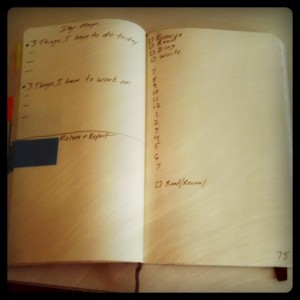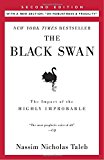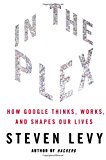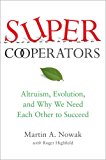 As the list in my sidebar here suggests, I’m currently reading The Black Swan and loving it. This book has been on my mental “to read” list for years now but I have never made my around to picking it up. I seriously regret that oversight. This is a really impactful book, especially given our current market conditions. So much so that I wonder how it can have been a best seller but still elicit so little response from those who read it. My only reasoning is that those who should have read it (policy makers and economists) haven’t.
As the list in my sidebar here suggests, I’m currently reading The Black Swan and loving it. This book has been on my mental “to read” list for years now but I have never made my around to picking it up. I seriously regret that oversight. This is a really impactful book, especially given our current market conditions. So much so that I wonder how it can have been a best seller but still elicit so little response from those who read it. My only reasoning is that those who should have read it (policy makers and economists) haven’t.
The book takes some work to get into at about 41% of the way through (according to my Kindle) NNT (Nassim Nicholas Taleb) finally get’s to the main point. And it’s not an easy *light* read but an enjoyable one. As I am not done with the book yet this is not a review, but I would still consider it a recommendation. Even when I do finish it I will find it hard to write a review beyond, “Yes, go read it.”
The basic premise of the book is that Black Swans are things that are unforeseen and have huge impacts. (Europeans all believed that all swans were white because they had never seen a black one.) The Harry Potter series and the Market crash 3 years ago were Black Swans. Even those people who expected JK’s book would sell or that there was instability in the market, did not expect either to have the impact they had.
Closer to home (though not addressed in the book) social media, Facebook, Twitter, YouTube, were all Black Swans.
Part of the problem is that we as humans are horrible at predicting Black Swans but driven to predict out of necessity. Every day we make thousands of predictions. “How will they respond to this email?” “Which way is that idiot turning?” “I bet this tweet will get a few RT’s” We do it everyday but we have some major blind spots.
NNT brings up an example: At the end of everyday you wonder to yourself, “What will tomorrow bring and what will I do tomorrow.” The next day happens and it’s never exactly like we thought it would be but we never stop to wonder about it. You never look back at the delta between what I thought today would bring and what actually happened. Well most people don’t at least.
Plan/Predict Then Return and Report
 The key to becoming better at predictions is to know what your biases are, what your blind spots are and where your ignorance lies. No one will ever predict what it is that will replace social media. But you can get better at predicting that whatever it is will be big when you see it. When I talk about prediction, I’m not talking about fortune telling or prophesying, I’m talking about recognizing a Black Swan when you see it and knowing what to do with it. Most people stare at Black Swans for years, dismissing it as a big duck.
The key to becoming better at predictions is to know what your biases are, what your blind spots are and where your ignorance lies. No one will ever predict what it is that will replace social media. But you can get better at predicting that whatever it is will be big when you see it. When I talk about prediction, I’m not talking about fortune telling or prophesying, I’m talking about recognizing a Black Swan when you see it and knowing what to do with it. Most people stare at Black Swans for years, dismissing it as a big duck.
As part of my GTD Moleskine Hack I have a page divided in half labeled Day Map on the top and Return and Report at the bottom. The basic idea is that at the end of each day I plan out my next day and then at the end of that day I briefly write about my day. What worked, what didn’t, what should I do different. This is the part where I write down what did I expect to happen vs what really happened.
The fact is that no predictions are ever right. At best you can hope to be directionally correct, enough so that you can course correct along the way.
This is also why I write down my predictions for the end of the year each year and then go back to it and grade myself. Okay, yes part of it is I want to be able to point out when I was right but I want to be publicly accountable for what I claim and I want to learn from my own errors. There is no way to do this without data. And by data I don’t mean statistics and numbers, I mean heuristic knowledge about my own insights and performance.
When our predictions about the market are wrong it’s not because the data or the market was wrong but that we were… less right.
NNT advocates for aggressive skepticism, both of other people’s predictions and especially of our own [emphasis mine]:
Don’t play chess to practice skepticism. Scientists believe that it is the search for their own weaknesses that makes them good chess players, not the practice of chess that turns them into skeptics. Similarly, the speculator George Soros, when making a financial bet, keeps looking for instances that would prove his initial theory wrong. This, perhaps, is true self-confidence: the ability to look at the world without the need to find signs that stroke one’s ego.
Write down your predictions. Write down as many of your predictions as you can, little and big. And then write down the delta between what you predicted and what actually happened. This is the most important data you can collect. If people spent more time on this kind of data and less on trying to get better market data, we’d be way better off.
Black Swan photo credit Emma Lorene Anderson.
Similar Posts:
- The Most Mind Blowing Internet Statistic
- A Collection of 2010 Social Media Predictions
- My New and Improved GTD Moleskine Hack
# of Comments 8
# of Comments 6
# of Comments 16






